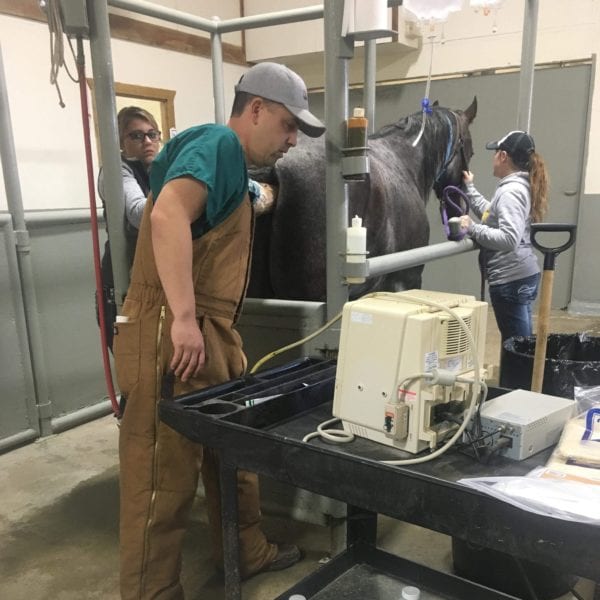Are you new to breeding? Or maybe you have struggled getting your mare in foal year after year?
GoHorseShow talked to Dr. Justin L Voge, who is a reproductive veterinary specialist at Hartman Equine Reproductive Center in Whitesboro, Texas, about several ways mare owners can adequately prepare their mares for breeding season. Getting ahead of potential problems and developing a gameplan with your veterinarian will help mare owners stay proactive and ahead of the game.
Take a look at his quick tips below.
1. Get your mare cycling
Place her under lights 60 days prior to when you plan to start. Some mares will need more time, some will need less. They need 14 and a half hours of daylight per day to stimulate them to cycle. You need to be able to read a newspaper in the darkest corner of their stall or lighted pen to make sure there is enough light. If you are unable to place your mare in a lighted stall or pen, the Equilume Mask is an option.
2. Go with Experience
Locate a facility with an experienced equine reproductive veterinarian to work with you and to develop the proper plan for your mare. Does she need cultured? Has she had trouble getting in foal in past years?
3. Contracts in Place
Make sure all stallion and/or embryo contracts are in place and all fees have been paid. This alleviates the frustration of not being able to order semen when your mare is ready to breed. Mares have been missed because of this, which further prolonged a pregnancy.
4. Scheduling Time Off for Embryo Transfers
On average, if everything goes 100% as planned, at least three weeks off a busy show schedule is needed for a show mare to give a successful flush of an embryo and the recipient mare having a positive first check. It’s very important that you plan your show schedule around your flushing scheduling for embryo transfers. Mares are usually not allowed to have a substantial workload after inseminating and before flushing.
5. End with a Clean Slate
It is essential for the vet to see the mare come back into heat after a flush and then do a uterine culture to make sure the mare does not have a uterine infection. Ending the breeding season with a reproductively healthy mare will put you ahead of the game at the beginning of the next breeding season.
About the Author: Justin Voge, DVM, MS, Diplomate of the American College of Theriogenologists is a reproductive veterinary specialist at Hartman Equine Reproduction Center in Whitesboro, Texas. The practice offers clients services in all aspects of equine reproduction, including stallion and mare management as well as onsite embryo transfer. Justin along with his wife, Julie, and son, Colton, are active breeders of western pleasure horses. You will also see Justin exhibiting at the NSBA shows in the non pro western pleasure futurities in his off time.









